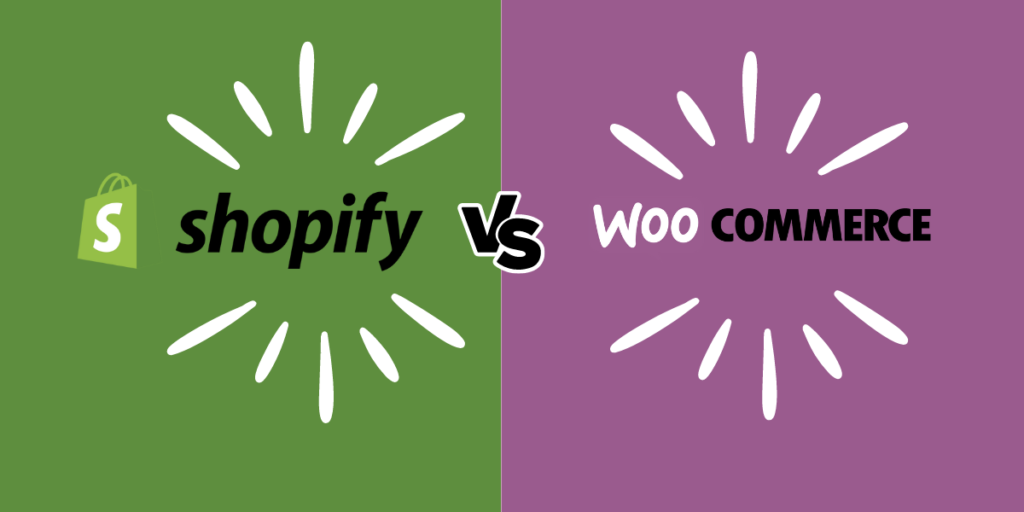In the world of eCommerce, two platforms stand out as the top choices for online store owners: Shopify and WooCommerce. Both platforms offer robust features and flexibility, but which one is better for your business? In this article, we will compare Shopify and WooCommerce across various aspects to help you make an informed decision. Additionally, we’ll explore the benefits of migrating from Shopify to WooCommerce and provide resources for a seamless transition.
Ease of Use
Shopify
Shopify is renowned for its user-friendly interface and ease of use. It is a fully hosted platform, meaning that all the technical aspects, such as hosting, security, and maintenance, are handled by Shopify. This allows store owners to focus on their business without worrying about the technical details. The setup process is straightforward, and users can have their store up and running quickly.
WooCommerce
WooCommerce, on the other hand, is a plugin for WordPress, which means it requires a bit more technical knowledge to set up and maintain. However, it offers unparalleled flexibility and customization options. With WooCommerce, you have complete control over your store’s design and functionality. This platform is ideal for those who are comfortable with WordPress and want the freedom to customize every aspect of their store.
Cost
Shopify
Shopify operates on a subscription model, with plans ranging from $29 to $299 per month, plus transaction fees. This includes hosting, security, and support. While the costs can add up, especially with additional apps and themes, the convenience of having an all-in-one solution can justify the expense for many store owners.
WooCommerce
WooCommerce itself is free, but you will need to pay for hosting, a domain name, and any additional plugins or themes you want to use. This can make WooCommerce more cost-effective in the long run, especially for larger stores or those with specific customization needs. However, the initial setup and ongoing maintenance can require more investment in terms of time and technical expertise.
Design and Customization
Shopify
Shopify offers a wide range of professionally designed themes, both free and paid. The platform’s drag-and-drop editor makes it easy to customize your store without any coding knowledge. However, customization options can be limited compared to WooCommerce, and some advanced features may require additional apps.
WooCommerce
With WooCommerce, the possibilities for design and customization are virtually limitless. Since it is built on WordPress, you can leverage thousands of themes and plugins to create a unique store that matches your brand perfectly. WooCommerce also supports custom code, allowing for advanced customization that goes beyond what Shopify can offer.
Features and Scalability
Shopify
Shopify provides a comprehensive set of features out of the box, including unlimited products, multiple sales channels, and a robust POS system. The platform also offers a wide range of apps to extend its functionality. However, some advanced features may require additional fees.
WooCommerce
WooCommerce is highly scalable and can support stores of all sizes, from small startups to large enterprises. It offers all the essential eCommerce features and can be extended with numerous plugins. Because it is open-source, developers can create custom solutions tailored to specific business needs. This makes WooCommerce an excellent choice for growing businesses looking for long-term scalability.
SEO and Marketing
Shopify
Shopify includes basic SEO features and integrates with popular marketing tools. However, its closed ecosystem can limit your ability to implement advanced SEO strategies. Shopify’s app store offers a variety of SEO and marketing apps, but these often come at an additional cost.
WooCommerce
WooCommerce excels in SEO capabilities, thanks to its integration with WordPress. You have complete control over your site’s SEO settings and can use powerful plugins like Yoast SEO to optimize your store. WooCommerce also offers extensive options for content marketing, making it a superior choice for businesses focused on SEO and inbound marketing.
Support and Community
Shopify
Shopify offers 24/7 customer support via phone, email, and live chat. The platform also has an extensive knowledge base and a community forum where users can find answers to common questions. Shopify’s dedicated support can be a significant advantage for those who need immediate assistance.
WooCommerce
WooCommerce relies on community support and documentation. While there is no official support team, the large and active WooCommerce community can provide valuable assistance. Additionally, many hosting providers offer managed WooCommerce hosting with dedicated support. The availability of professional developers and agencies also ensures that you can find expert help when needed.
Migrating from Shopify to WooCommerce
If you’re considering switching from Shopify to WooCommerce, the process can be straightforward with the right tools. The migrate Shopify to WooCommerce plugin simplifies the migration process, ensuring a seamless transition of your products, orders, and customer data. This allows you to leverage the benefits of WooCommerce without losing your existing data or disrupting your business operations.
Conclusion
Both Shopify and WooCommerce have their strengths and weaknesses. Shopify is ideal for those who want a simple, all-in-one solution with minimal technical requirements. WooCommerce, however, offers greater flexibility, customization, and control, making it the better choice for businesses looking for long-term growth and scalability. Ultimately, the best platform for your business depends on your specific needs and goals. If you are looking to migrate from Shopify to WooCommerce, there are excellent tools available to make the process smooth and efficient, allowing you to enjoy the benefits of WooCommerce.



